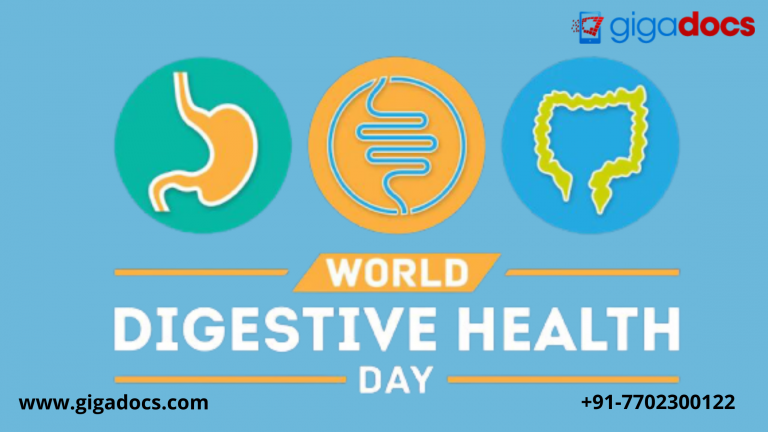Good digestive health allows the body to break down food and absorb nutrients properly. Constipation, heartburn, bloating, indigestion, and more serious digestive diseases are less likely in people who have healthy digestion. Acid reflux, gallstones, and irritable bowel syndrome are common digestive disorders.
The Journey of Food Digestion?
The body cannot properly break down and absorb nutrients from food without a healthy digestive system, which explains why digestive health is critical. Nutrients like amino acids, fatty acids, and simple sugars from carbohydrates provide energy and cell growth and repair materials. Let’s read how many hours it takes for the food we eat to get digested-
| 2.5 to 3 hours | The contents of half of the stomach are emptied into the small intestine. |
| 4 to 5 hours | Stomach emptying is complete. |
| 2.5 to 3 hours | Approximately half of the contents of the small intestine empties into the large intestine. |
| 30 to 40 hours | Food reaches the rectum and then to the anus after passing through the large intestine (colon). |
What Is a Digestive Disease and How Does It Affect You?
The digestive tract is affected by digestive diseases, also known as gastrointestinal disease which ranges from mild to severe. The most common digestive disorders include- irritable bowel syndrome, acid reflux, gallstones, celiac disease, pancreatitis, Crohn’s disease, and ulcerative colitis.
The Five Most Common Digestive Disorders
- GERD and Acid Reflux
The digestive juices and acids in the stomach flow up into the esophagus, causing acid reflux and gastroesophageal reflux disease (GERD). Heartburn is the most common symptom. Typical GERD symptoms include nausea, swallowing difficulties, tooth decay, and breathing difficulties.
- Gallstones
Stones form when cholesterol deposits get hard in the gall bladder. They cause pain and inflammation in the right upper abdomen if they grow too big or numerous.
Abdominal pain, nausea, vomiting, clay-colored or light stools, and bloating are all signs of gallstones. Medication and lifestyle changes are common treatments for symptomatic gallstones. Cholecystectomy and gallbladder removal surgery is the most common recommendation.
- Crohn’s Disease
The digestive tract inflammation explains Crohn’s disease (chronic inflammatory bowel disease). The small intestine is usually affected, but it can affect any part of the digestive tract. Weight loss, stomach cramps, and diarrhea are the most common symptoms.
- Irritable Bowel Syndrome
Irritable bowel syndrome, also known as IBS, is a digestive disorder characterized by abdominal pain, diarrhea, constipation, and bloating. Non-digestive symptoms may include body aches and pains, headaches, and urinary problems in some people.
- Diverticulitis
Diverticulitis is characterized by small pouches that sprout from weak spots in the large intestine or colon. Most people have no symptoms, but when these pouches become inflamed, they can cause abdominal pain, bleeding, and bowel movement changes.
A high-fiber diet, fiber supplements, medicines, and probiotics are among the treatments.
World Digestive Health Day
On May 29, World Digestive Health Day (WDHD) is commemorated annually in collaboration with the World Gastroenterology Organization (WGO) and the WGO Foundation (WGOF). Every year, the day dedicates to a specific digestive disease or disorder to raise public awareness about the disease’s prevention, prevalence, diagnosis, management, and treatment.
Digestion and Gut Health
Good bacteria and harmful bacteria maintain a healthy balance in the gut—poor gut health links to mental illnesses like dementia, anxiety, and depression. At the same time, an unhealthy gut may experience increased inflammation throughout the body and a weakened immune system. Allergies, asthma, and chronic illnesses such as heart disease and diabetes are also more common.
Telehealth and Digestive Disorders Treatment
Long-term medical management is required for digestive diseases such as Crohn’s disease, hepatitis C, and chronic pancreatitis. With the expansion of telehealth/virtual medical appointments, patients can now have access to specialists without traveling to a medical clinic. Telehealth visits are also an option for people suffering from acute digestive problems like constipation or diarrhea.
A physician can assess your condition, health history, and medication usage during a video chat on the Gigadocs app. If you need more testing or in-person treatment, your doctor will refer you to a local clinic. Otherwise, the specialist will instruct you on how to deal with the digestive problem while you take a rest at home.
To book a specialist, download the Gigadocs App from
- IOS App – apple.co/2W2iG4V
- Android App – bit.ly/33AQoRC




